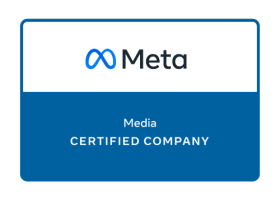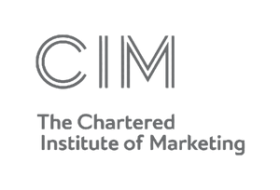In today’s digital landscape, optimising your website for search engines is crucial for visibility and attracting the right audience. Meta tags play a vital role in this process.
Meta tags are snippets of text in the HTML code of a webpage that describe the page’s content. They provide information to search engines about the page and can influence how the page appears in search results. By understanding and utilising meta tags effectively, you can optimise your web pages to attract more organic traffic and improve your website’s visibility.
Key Takeaways:
- Meta tags are essential elements of HTML code that describe webpage content.
- There are four main types of meta tags: meta keywords attribute, title tag, meta description attribute, and meta robots attribute.
- The title tag is the most crucial meta tag for search engine rankings and visibility in search results.
- Meta descriptions provide a brief summary of the webpage and can influence click-through rates from search results.
- The meta robots attribute instructs search engine crawlers on how to handle the webpage.
By implementing meta tags correctly and following best practices, you can enhance your webpage optimisation and improve your SEO keyword strategy. Remember to write accurate, concise meta tags with relevant keywords to attract both users and search engine bots. Avoid keyword stuffing and adhere to Google’s guidelines to ensure optimal results.
Understanding Meta Tags
In order to understand the power of meta tags, it’s important to explore their different types and how they impact your website’s visibility on search engines. Meta tags are snippets of text in the HTML code of a webpage that describe the page’s content. They provide information to search engines about the page and can influence how the page appears in search results.
There are four main types of meta tags that play a significant role in search engine optimisation (SEO). The first type is the Meta Keywords Attribute, although it is no longer as useful as it once was and is often ignored by search engines. Next is the Title Tag, which is the most important and visible meta tag. It appears as the title in search results and can significantly impact search rankings.
The third type is the Meta Description Attribute. This tag provides a brief description of the page and can influence click-through rates from search results. Finally, we have the Meta Robots Attribute, which instructs search engine crawlers on what to do with the page, whether to index it or follow links on it.
Meta tags are highly important for SEO as they help improve the visibility and ranking of a website on search engines. When writing meta tags, it is essential to accurately and concisely describe the page’s content while incorporating relevant keywords that users may search for. However, it is crucial to avoid keyword stuffing and adhere to Google’s guidelines to ensure the tags are effective.
To summarise, meta tags are integral components of webpage optimisation and SEO. They provide crucial information to search engines, influence how a page appears in search results, and impact its visibility and ranking. By understanding the different types and using them effectively, you can enhance your website’s presence on search engines and attract more users.
| Meta Tag Type | Function |
|---|---|
| Meta Keywords Attribute | Not very useful anymore, often ignored by search engines |
| Title Tag | Most important and visible; affects search rankings |
| Meta Description Attribute | Provides a brief description; influences click-through rates |
| Meta Robots Attribute | Instructs search engine crawlers on how to handle the page |
The Importance of the Title Tag
The title tag is arguably the most significant meta tag when it comes to optimising your website for search engines and improving its ranking. It is the text that appears as the clickable headline in search engine results pages (SERPs) and as the title of the webpage in browser tabs.
Search engines consider the title tag as a crucial factor in determining the relevance and context of a webpage. It helps search engine crawlers understand what your page is about and how it should be indexed. The title tag also plays a vital role in attracting users’ attention and influencing their decision to click on your website.
To optimise your title tag for search engine ranking and on-page optimisation, it is essential to keep it concise, relevant, and engaging. Include important keywords that accurately describe your page’s content and match the user’s search intent. However, avoid keyword stuffing, as search engines may penalise websites that engage in this practice.
The Anatomy of an Effective Title Tag
An effective title tag should typically be between 50 to 60 characters long, including spaces. It should accurately summarise the main topic or purpose of your webpage while enticing users to click on it. Additionally, it is beneficial to include your brand name at the end of the title tag to build brand recognition and credibility.
| Best Practices for Creating Compelling Title Tags: |
|---|
| 1. Use relevant keywords that align with users’ search intent |
| 2. Keep the title tag within the optimal character limit |
| 3. Write unique title tags for each webpage to avoid duplicate content issues |
| 4. Incorporate persuasive language to entice users to click |
Remember, the title tag is not only essential for search engine optimisation but also for creating a positive user experience. Craft an engaging and informative title tag that accurately reflects your page’s content, and you’ll be on your way to improving your website’s search engine ranking and attracting more organic traffic.
References:
- Google. (n.d.). Support: Create good titles and snippets in search results. Retrieved from https://support.google.com/webmasters/answer/35624
- Moz. (n.d.). Title Tag. Retrieved from https://moz.com/learn/seo/title-tag
Disclaimer: The information provided in this article is based on general knowledge and may vary depending on specific circumstances. It is always recommended to refer to official guidelines and consult with SEO professionals for accurate and up-to-date advice.
| Key Takeaways: |
|---|
| – The title tag is a crucial meta tag for optimising your website’s search engine ranking |
| – It appears as the clickable headline in search results and influences users’ decision to click |
| – Keep the title tag concise, relevant, and engaging, using relevant keywords |
| – Craft an informative and persuasive title tag to improve your website’s visibility and attract more organic traffic |
Crafting Compelling Meta Descriptions
Meta descriptions may be small snippets of text, but they have a big impact on attracting users and increasing click-through rates from search engine results. When users search for information on search engines like Google, the meta description appears below the title tag and gives a brief overview of the page’s content. It serves as a window into your website, enticing users to click and explore further.
To create effective meta descriptions, it’s important to keep them concise, engaging, and relevant to the page’s content. They should accurately summarise what the page has to offer and include relevant keywords that align with the user’s search intent. Including a call-to-action or a unique selling point can also help grab attention and entice users to click.
Here are some tips to craft compelling meta descriptions:
- Keep it concise: Aim for a maximum of 160 characters to ensure that the entire description appears in search results.
- Highlight key benefits: Emphasize the unique value proposition of your page and what sets it apart from competitors.
- Incorporate relevant keywords: Use keywords that are relevant to the content of the page and the user’s search query.
- Create a sense of urgency or curiosity: Encourage users to take action or explore further by using words like “discover,” “learn,” or “limited time offer.”
Remember, meta descriptions play a crucial role in attracting users and increasing click-through rates. Take the time to craft compelling and relevant descriptions that accurately represent the content of your pages. By doing so, you can improve your website’s visibility in search engine results and drive more organic traffic to your site.
Optimising with Meta Robots Attribute
The meta robots attribute is an essential tool that guides search engine crawlers on whether to index your web pages or follow the links within them. By using this attribute strategically, you can enhance the crawlability and indexability of your website, ultimately improving its visibility on search engine result pages.
There are several values that you can assign to the meta robots attribute, each serving a specific purpose:
- Index: This value indicates that the page should be indexed by search engines. It allows the crawler to include the page in its database.
- Noindex: On the other hand, this value signals search engine crawlers not to index the page. It can be useful for certain types of content that you don’t want to appear in search results.
- Follow: When assigned to the meta robots attribute, this value instructs crawlers to follow the links on the page. It ensures that the linked pages can also be crawled and indexed.
- Nofollow: In contrast, this value tells search engine crawlers not to follow the links on the page. It can be relevant for pages containing untrusted or irrelevant links.
Using the meta robots attribute appropriately can help you control how search engine crawlers interact with your website. For example, you might want to use the index and follow values for your main webpages to ensure they are included in search results and that search engines crawl all the linked content.
| Value | Description |
|---|---|
| Index | The page should be indexed by search engines. |
| Noindex | The page should not be indexed by search engines. |
| Follow | Crawlers should follow links on the page. |
| Nofollow | Crawlers should not follow links on the page. |
Remember, optimising your meta robots attribute alone won’t guarantee the success of your website. It should be part of a comprehensive SEO strategy that includes quality content, relevant keywords, and user-friendly web design. By combining these elements, you can maximise your website’s crawlability, indexability, and overall visibility in search engine results.
Conclusion
Meta tags are the unsung heroes of successful marketing, playing a pivotal role in optimising your website for search engines and improving its visibility and ranking. These snippets of text, embedded in the HTML code of a webpage, provide essential information to search engines about your page’s content. Understanding and utilising meta tags effectively is crucial for achieving optimal results in webpage optimisation and SEO.
The four main types of meta tags, namely the Meta Keywords Attribute, Title Tag, Meta Description Attribute, and Meta Robots Attribute, each serve a specific purpose in enhancing your website’s performance. While the Meta Keywords Attribute is no longer as useful, the Title Tag takes centre stage as the most important and visible meta tag. It not only appears as the title in search results but also has a significant impact on search rankings.
Furthermore, the Meta Description Attribute plays a vital role in attracting users through search results. By providing a concise and compelling description of your page’s content, you can influence click-through rates and increase user engagement. Lastly, the Meta Robots Attribute guides search engine crawlers on how to handle your web pages, influencing factors such as crawlability and indexability.
To optimise your website effectively, it is crucial to write accurate and concise meta tags with relevant keywords. Avoid keyword stuffing and adhere to Google’s guidelines to ensure maximum impact. By utilising meta tags strategically, you can improve the visibility, search rankings, and overall performance of your website, ultimately driving more traffic and achieving your marketing goals.
FAQ
Q: What are meta tags?
A: Meta tags are snippets of text in the HTML code of a webpage that describes the page’s content. They provide information to search engines about the page and can influence how the page appears in search results.
Q: How many types of meta tags are there?
A: There are four main types of meta tags: the Meta Keywords Attribute, the Title Tag, the Meta Description Attribute, and the Meta Robots Attribute.
Q: What is the purpose of the Meta Keywords Attribute?
A: The Meta Keywords Attribute is not very useful anymore and is often ignored by search engines.
Q: Why is the Title Tag important?
A: The Title Tag is the most important and visible meta tag. It appears as the title in search results and can significantly impact search rankings.
Q: What is the role of the Meta Description Attribute?
A: The Meta Description Attribute provides a brief description of the page and can influence click-through rates from search results.
Q: What does the Meta Robots Attribute do?
A: The Meta Robots Attribute instructs search engine crawlers on what to do with the page, whether to index it or follow links on it.
Q: Why are meta tags important for SEO?
A: Meta tags are important for SEO as they help improve the visibility and ranking of a website on search engines. They should be written accurately, concisely, and with relevant keywords to attract users and search engine bots.
Q: What should be considered when writing meta tags?
A: When writing meta tags, it is crucial to avoid keyword stuffing and to follow Google’s guidelines. Meta tags should be crafted accurately, concisely, and with relevant keywords to attract users and search engine bots.



